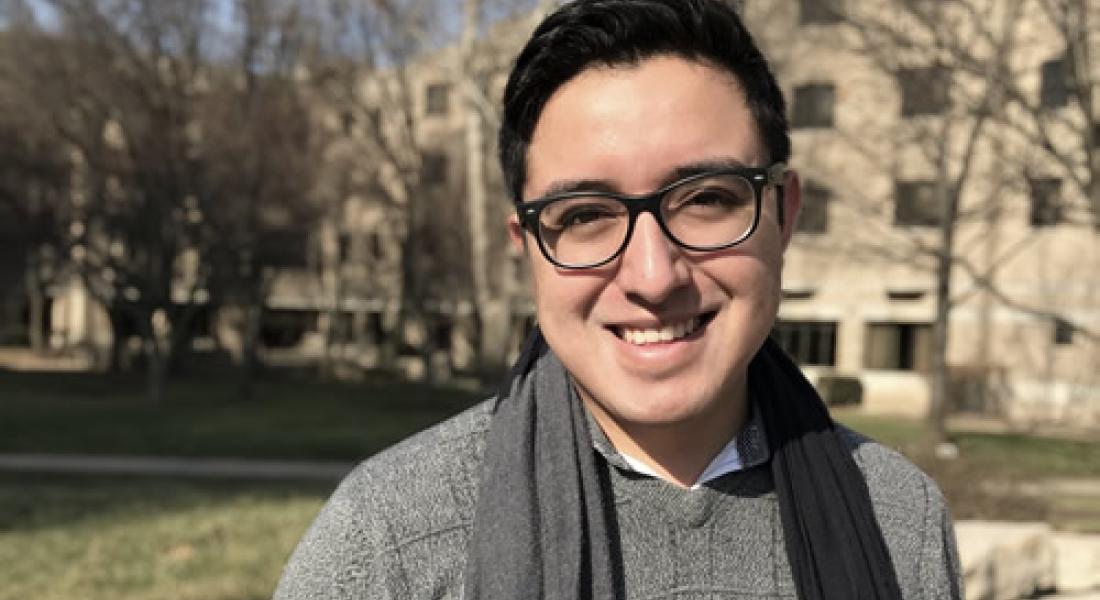Two Kellogg doctoral student affiliates in the Department of Political Science—Jeremy Graham and Juan Angel Valdez Jr.—are in the first year of five-year fellowships awarded in 2016 by the National Science Foundation Graduate Research Fellowship Program (NSF-GRFP). The competitive national awards honor students pursuing research-based degrees in science, technology, engineering, mathematics, and the social sciences.
Jeremy Graham, a former active-duty Naval officer, focuses his international relations research on the costs of war.
“The costs are multifaceted, including the taking of human life, physical and emotional trauma, defense expenditures, and the industrial base that supports a professional military,” he says.
“I study the intersection of national security and political economy with a particular interest in the strategic dynamics that affect political violence and human development.”
The NSF fellowship is an exciting and important opportunity, he says. “Not only will the NSF fellowship provide support for my research and help me stand out in my job search, it will also give me access to additional fellowships and programs that facilitate overseas research and internships that are only available to NSF Graduate Research Fellows.”
Graham has benefited from working with Faculty Fellow Amitava Dutt, whom he credits with helping him to win a Clifford C. Clogg scholarship to attend the Interuniversity Consortium for Political and Social Research, where he received certifications in game theory and rational choice models of politics and society. Dutt has been “a great sounding board for ideas,” always ready to give him honest assessment of his work, Graham says.
When choosing graduate programs, he was drawn to Notre Dame’s collaborative, interdisciplinary environment.
“Affiliating with the Kellogg Institute has given me the opportunity to learn from smart and generous people,” he says.
Juan Angel Valdez Jr., who is interested in transnational citizenship and identity, is examining Latino political incorporation—the process through which people think of themselves as belonging to the American political system.
“Latinos represent the largest ethnic minority group in the US, and to better understand this burgeoning group, it is important to study their experiences within the US political system,” he says. He is using the NSF-GRFP award to conduct dissertation research.
“My fieldwork will explore how different generations of Latinx have been incorporated into American sociopolitical life over the last several decades,” he says.
He is studying formal political activities, such as voting and running for office; informal political activities, such as protesting and the formation of civic organizations; and the relevant state/local specific institutions that structure participation.
For Valdez, who is also an Institute for Latino Studies graduate fellow, the NSF award represents a major milestone, both personally and in his academic career.
“It demonstrates that my research is worthy of scientific pursuit, rigor, and funding,” he said. “As a first-generation college graduate coming from a strong immigrant background, the award also represents the unapologetic success generated from my family’s struggles in coming to the US.”
Currently, in addition to his research on Latinos in the US, Valdez is working with Faculty Fellow Jaimie Bleck to evaluate local governance in Malawi, with funding from Catholic Relief Services.
The Kellogg Institute for International Studies, part of the University of Notre Dame’s new Keough School of Global Affairs, is an interdisciplinary community of scholars and students from across the University and around the world that promotes research, provides educational opportunities, and builds linkages related to two topics critical to our world—democracy and human development.
First posted at politicalscience.nd.edu







